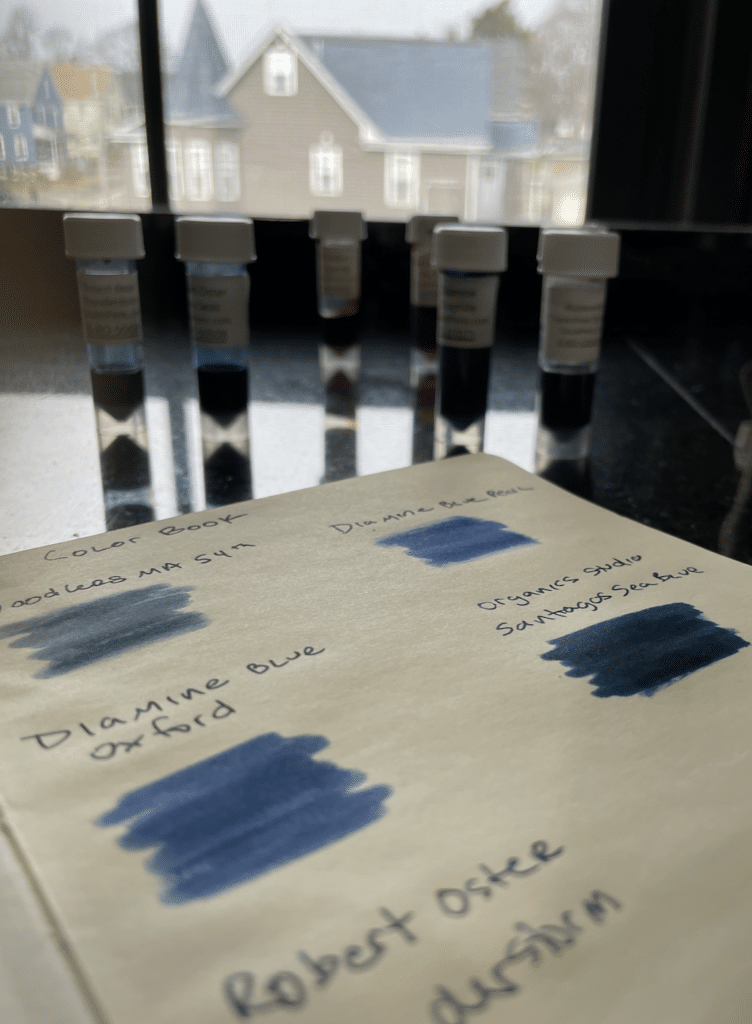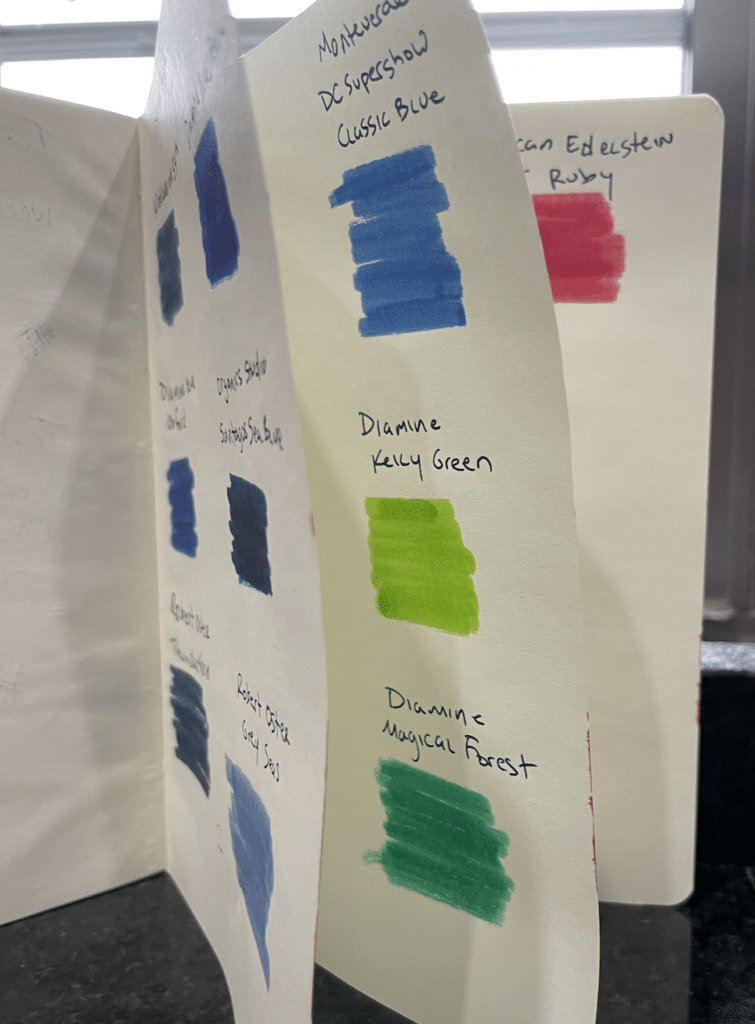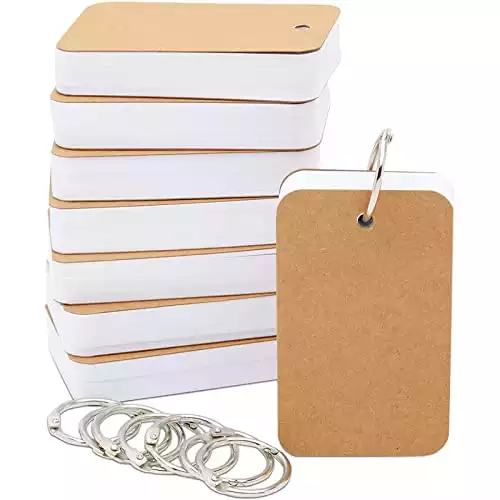I love buying fountain pen ink samples. At any given time, I have well over a dozen.
Some may call it an addiction. But one of the things I love about writing with my pens is trying out all the different brands of fountain pen inks.
But that left me with a problem: it’s really hard to tell what the ink looks like on paper from the little bottles.
So, I came up with a solution. I made a fountain pen ink sample book.
Here’s how to do it.
An easy way to track your fountain pen inks
You don’t need much to start.
Grab a notebook. I snagged a blank one from the dollar tree store, but any less expensive one will do. Or, you can grab a stack of notecards or color swatch books.
What's cool about a set like this is the paper is very heavy cardstock. So you'll get a great look at your ink color without worrying about bleedthrough.
Gather your various fountain pen ink samples and some q-tips.
You don’t need a ton of ink for your sample book. I pop off the top and pull ink residue from the cap or sides of the sample bottle; that should be enough.
Next, rub the q-tip on the notebook paper, and most importantly, don’t forget to write the name of the sample.

From there, the process is self-explanatory.
Add a sample swatch for each ink.
Take notes on your favorites
Now that you’ve got your sample book, you can do a lot with it.
Most importantly, it’s much easier to tell what each sample looks like on paper. If you’re into a certain color, like blues or blacks, they all look pretty close in the bottle.
But on paper, you can see they’re wildly different.
One might have a bit of sheen, and another could be too light (or ugly, sorry).
As you go through your inks, start making notes on the ones you love.
My favorite, thus far, is the Jacques Herbin 1670 Anniversary Emerald of Chivor.
Yes, it’s a mouthful.
But it’s also a beautiful green ink with hints of red and flecks of gold shimmer.
I don’t have the sample in my book because I used it all up the second I got it.
Once I replenish it, It will be in the book with a lot of stars next to it.

Download this cheatsheet and get expert solutions for the 13 most common pen problems.
Get The FREE CheatsheetHave fun with inks
One of the best parts of writing with a fountain pen is you’re not limited to blue or black ink.
You can try all sorts of different colors, textures, and styles and land on some favorites.
There’s always new ink to explore.
So whether you’re a journaled, doodler, drawer, or just love writing, don’t get stuck trying to zero in and find the perfect ink for a fountain pen right away.
Get a bunch of ink samples. Try them out. Keep track.
And before you know it, you’ll have a list of favorites.
Liz
Hey, I'm Liz. I'm the founder of this thing. Pen-obsessed and a notebook nut, I love writing by hand. So I'm gonna talk about it on a computer.Download this cheatsheet and get expert solutions for the 13 most common pen problems.
Get The FREE Cheatsheet
